Imagine being your 15-year-old self again. What did that feel like? Young, carefree, happy…healthy?
For me, I felt all of those things every day. I played the clarinet, got good grades, was athletic from running track, active in school/church clubs and had amazing family/friends. What more could I want as a teenager?
I didn’t want for anything until one day I no longer felt like my healthy self anymore and all I wanted was to be healthy again. This is when my life changed forever…
It was November of 2012, at the time I had just moved to Los Angeles, California with my mother from Maryland. I was very excited to move and support my mom with her new job opportunity. She is like my best friend and nurturer at the same time. It was always just her and I growing up, no siblings. California’s scenery was colorful and vibrant. All I could picture were the great things my future would bring living there.
That picture flipped upside down within weeks. I could feel my stomach expressing to me that it didn’t like the chicken nuggets or the pepperoni pizza, I was feeding it. Sharp pains that felt like knives were sticking me each time I would eat, pushed me to never want to pick up another piece of food again. No over-the-counter medicine could relieve the amount of pain I would feel. Sick little me sat helplessly with my mother by my side in Ronald Regan UCLA Medical Center’s emergency room waiting to be admitted and seen by a doctor. I thought to myself, “What was happening to me? I don’t understand.”
I couldn’t understand. I was just fine a month ago. My mom was just as confused as I was. The doctors weren’t transparent enough with my diagnosis and had trouble figuring out what was the actual problem. After a few tests, I was diagnosed with ulcerative colitis/Crohn’s disease. This diagnosis soon changed once the gastrointestinal team at UCLA Medical Center (UCLAMC) realized it was strictly my colon that was being affected which changed my diagnosis to ulcerative colitis.
I had no idea what ulcerative colitis was nor had I ever heard of it before. My current gastroenterologist, Dr. Ziring, asked who in my family had the disease but I wasn’t familiar with anyone. My father, mother, and grandparents didn’t have any trace of ulcerative colitis. It was concluded that the change in climate and stress could have taken a toll on my body to make me flare-up. I couldn’t eat certain foods anymore. I was prescribed all types of medication that I had never seen and forced to take pills that were pretty huge to swallow.
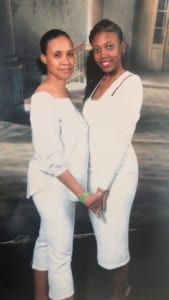
Lacee Harper with her mother.
Nearly one month spent in the hospital, my routine had changed. I would wake up take my meds first, eat (liquid-solid foods), watch TV, read a book, walk around to gain my strength and repeat at least three times a day. Once I was released, I remember being so happy to be a normal person again. That feeling went away when my mom took me to buy nutritional drinks to restore my protein, vitamins, and minerals. I couldn’t fit into any of my clothes from the amount of weight I lost and my toned body went away. Dr. Ziring told me that I would live with this forever because there is no cure, which I didn’t want to believe. All I could do was try to understand and educate why my body reacted the way it did to certain foods, activities and mental stability.
Fast forward to 2013 where I moved back to Maryland with my mother, I was enrolled back in my previous high school and actively seeing, pediatric gastroenterologist, Dr. Oliva-Hemker at John Hopkin’s hospital. I couldn’t do any of the previous extracurricular activities I participated in and could only workout at a minimal intensity due to my low blood counts. Throughout the school year, I experienced many flare-ups and trial/error with different medications. Some hospitalizations were longer than others and overtime I became stricter with my diet to prevent excessive flare-ups. My high school graduation wasn’t the best time for me because I was experiencing a severe flare-up that interfered with my ability to keep food down. I missed my senior week summer trip to recover in the hospital and get back to feeling better again.
After graduating from high school, I switched gastroenterologists since I was considered an adult. Dr. Rosen had been my mom’s gastroenterologist for years so the transition was smooth. I was stabilized on Humira and Prednisone throughout my community college career. By then, my mother and I had moved to Atlanta where the weather was nicer. I think the weather, being around family/friends and less stress I experienced helped my flare-ups calm down living in Atlanta. I truly enjoyed my time there and experiencing college at Georgia State University, as well as working part-time.

Lacee recently graduated with a master’s degree from the S.I. Newhouse School of Communications at Syracuse University.
Once I completed my first two years of college and received my associate’s degree, I transferred to Syracuse University (SU) to achieve my bachelor’s degree. This was one of the hardest transitions of my life moving from the South to the cold North. My third year of college and first-year being away at a university led to my body experiencing an extreme transition which resulted in three severe flare-ups. My mother left Atlanta and moved back to Maryland to be closer to me because she was terrified of how sick I was getting. Each time I flared up, I flew home to get the treatment from Dr. Rosen. Suddenly, Humira no longer worked for my body anymore and Prednisone wasn’t healthy for me to keep using to reduce inflammation due to its side effects.
During senior year, my 3-week hospitalization interfered with my academics and involvement in extracurricular activities. At this time, I was advised to try Entyvio and I was tired of trying new medications. The only way I could have some quality of life was to remove my colon. My mom was concerned for me, but I couldn’t let her concerns steer my thinking I knew I had to do this for me if I wanted to make it to graduation.
In November of 2017, I set an appointment with Dr. Colvin in Northern Virginia to discuss my surgery. I had the surgery during my college winter break, spent Christmas in the hospital, recovered and returned back to school. At the time, I didn’t know how I was going to apply to graduate school at the S.I. Newhouse School of Communications at SU but I did that during my recovery period. It took a lot of exercise, mental motivation, empathy and support from family, my best friends, mentors and peers at school. With amazing grace and good spirits, I got accepted into the public relations program at the S.I. Newhouse School of Communications.
From this specific point on, learning how to function in everyday life with my ostomy took a lot of patience, time, emotional breakdowns, motivation and positive mental strength. I don’t regret any of it at all. I do not have to worry about missing out or not fully enjoying any more important events of my life. Now as of 2020, I have been medication-free for two full years, graduated school with all of my degrees, feel healthier than ever, working full-time in public relations and am actively pursuing my dreams in the entertainment (modeling/tv/film) industry.
It wasn’t until a couple of months ago, I discovered United Ostomy Association of America (UOAA) and chose to reach out to Advocacy Manager Jeanine Gleba about getting more involved. Since reaching out, I have gained the opportunity to advocate for patient’s access to treatment during the Digestive Disease National Coalition Day on the Hill and spoke on the behalf of UOAA. I am elated to have met UOAA’s team and to represent others like myself who have experienced challenging obstacles.
I couldn’t be more grateful for my ostomy and must say that it changed my life for the good. Life is full of obstacles but how you choose to overcome them will make your life. I chose to take full control of my life in order to have a better quality of life. It doesn’t matter who you are, you can truly do whatever you put your mind to. Believing in yourself and staying grounded in positivity, motivation and dedication is key. Follow your dreams, find what makes you happy and don’t let the negatives take control of your life.
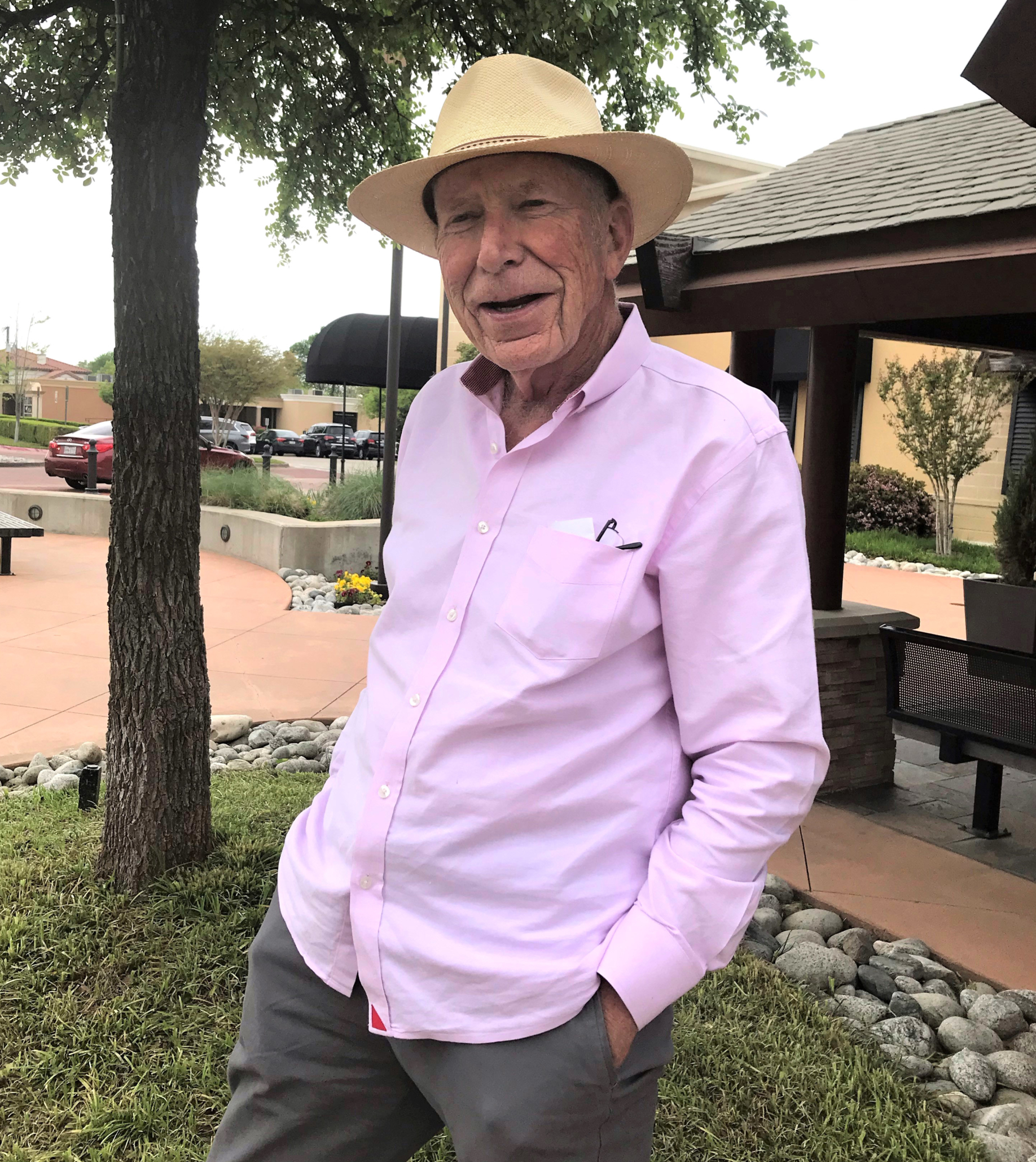 In the spring of 2014, I had completed another colonoscopy for my ulcerative colitis. It was my fifteenth colonoscopy in twelve years and many prescriptions of drugs later to curtail the bleeding of the polyps in my intestine.
In the spring of 2014, I had completed another colonoscopy for my ulcerative colitis. It was my fifteenth colonoscopy in twelve years and many prescriptions of drugs later to curtail the bleeding of the polyps in my intestine.
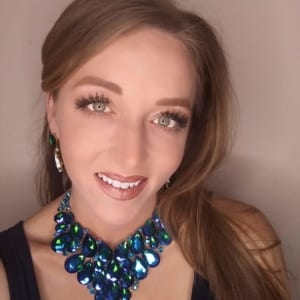 I was miserable. My family was miserable. But, I’d had enough and didn’t want any more treatments. Soon I was back in the hospital and one doctor reviewed ALL my info and said he knew exactly how to fix me…OK, just one more surgery then. Well, he was right…he fixed me!! I was no longer having incontinence issues, I could eat again (personalized diet plan) and was feeling great compared to the previous ten years. End of story right?!
I was miserable. My family was miserable. But, I’d had enough and didn’t want any more treatments. Soon I was back in the hospital and one doctor reviewed ALL my info and said he knew exactly how to fix me…OK, just one more surgery then. Well, he was right…he fixed me!! I was no longer having incontinence issues, I could eat again (personalized diet plan) and was feeling great compared to the previous ten years. End of story right?!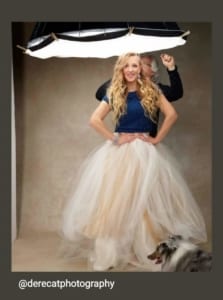
 Guess what? I didn’t win. I did not even place in the top 10. I went to the coronation party with a stage smile and promptly excused myself with my best friend by my side. She knew I needed to cry. As we reached the bottom of the grand staircase I could feel the tears of disappointment welling, and her hand grasping tighter to my arm letting me know I just had to keep it together for a few more seconds. At that moment a woman approached. She wanted to let me know her husband has an ostomy and seeing me on stage gave them so much hope and even though I didn’t win they were cheering for me! Again, I had to thank the universe for letting me know I was exactly where I was supposed to be.
Guess what? I didn’t win. I did not even place in the top 10. I went to the coronation party with a stage smile and promptly excused myself with my best friend by my side. She knew I needed to cry. As we reached the bottom of the grand staircase I could feel the tears of disappointment welling, and her hand grasping tighter to my arm letting me know I just had to keep it together for a few more seconds. At that moment a woman approached. She wanted to let me know her husband has an ostomy and seeing me on stage gave them so much hope and even though I didn’t win they were cheering for me! Again, I had to thank the universe for letting me know I was exactly where I was supposed to be.


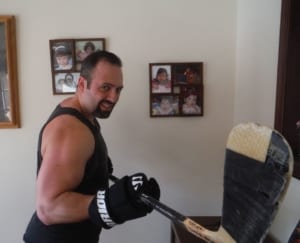
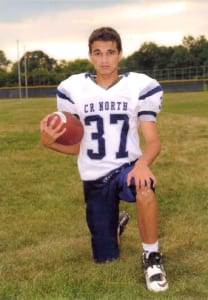
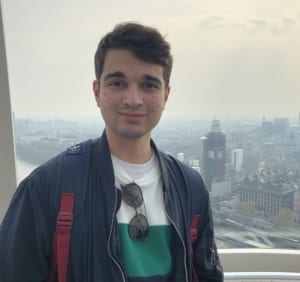
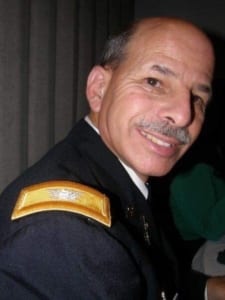
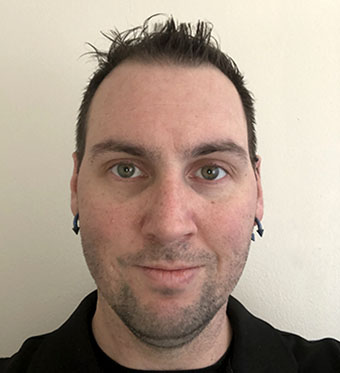 I was told if I didn’t have the surgery when I did, my Crohn’s disease would have killed me. Surgery made a drastic change in my life for the better. Now I will be around for my wife and kids.
I was told if I didn’t have the surgery when I did, my Crohn’s disease would have killed me. Surgery made a drastic change in my life for the better. Now I will be around for my wife and kids.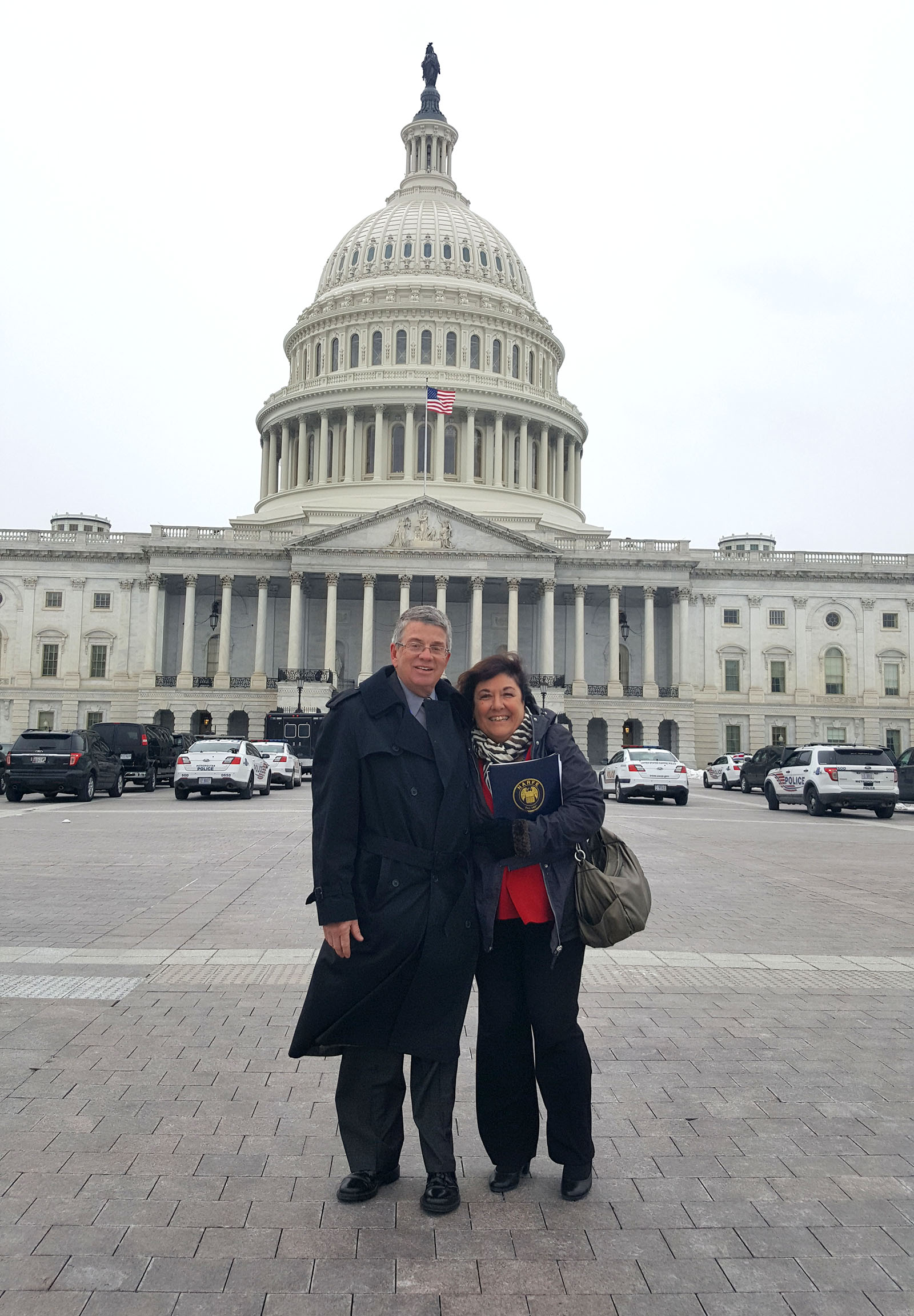
 After eight years of not responding to western pharmaceuticals, at the age of thirty, I found myself facing a colectomy. While I had anxiety about the ostomy surgery and fear of the unknown, my overall emotion was relief. This surgery was hopefully going to be the end of many years of pain and suffering. Thanks to the encouraging words of other ostomates I was wheeled into surgery with a smile on my face, excited about what the future would hold for me–I saw endless possibility!
After eight years of not responding to western pharmaceuticals, at the age of thirty, I found myself facing a colectomy. While I had anxiety about the ostomy surgery and fear of the unknown, my overall emotion was relief. This surgery was hopefully going to be the end of many years of pain and suffering. Thanks to the encouraging words of other ostomates I was wheeled into surgery with a smile on my face, excited about what the future would hold for me–I saw endless possibility!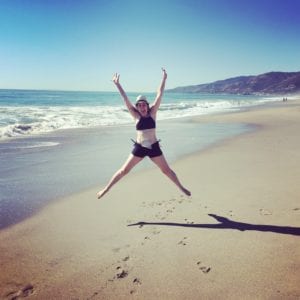
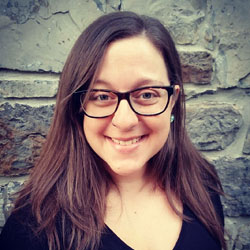 Saying that my ostomy gave me my life back is not an understatement. I don’t think I have ever felt better in my entire life. I was diagnosed with Crohn’s when I was 15 and in the 12 years I suffered before having surgery, I never once achieved full remission. I missed more school than I attended, had to take a medical withdrawal from college, and struggled to find and keep a job. I was in so much pain and having so many symptoms that I couldn’t leave the house for entire days at a time.
Saying that my ostomy gave me my life back is not an understatement. I don’t think I have ever felt better in my entire life. I was diagnosed with Crohn’s when I was 15 and in the 12 years I suffered before having surgery, I never once achieved full remission. I missed more school than I attended, had to take a medical withdrawal from college, and struggled to find and keep a job. I was in so much pain and having so many symptoms that I couldn’t leave the house for entire days at a time.

